It’s late in the day. The ravenous girl that I am, I’ve already finished four different meals throughout the day. Early morning breakfast. Late morning quick meal. Heavy lunch. Afternoon quick meal. I look at my sullen friend. “Have you eaten yet?”, I ask. “No, I haven’t been hungry the whole day,” she says. We go have dinner at a Japanese restaurant. As I am wont to do, I gorge myself with all the food I could get my hands on. Yes, including those on someone else’s plate. The one advantage of eating with dieters.
My friend loves Japanese food but she does not eat much, as if terrified of the idea that she might get full and all. After dinner, we head out to a milktea resto. She orders caramelized popcorn and eats heartily, as if feeling secure in the idea that popcorn won’t make her feel full.
I look at her sadly. She asks me why I look sullen. I tell her, “Nothing.” But in my mind I was thinking, “Here is a girl from a family that’s well-off, and with a job that pays well, but is probably as hungry as any struggling kid in Africa.”
The even sadder part is that instead of losing weight, she seems to have been gaining more and more.
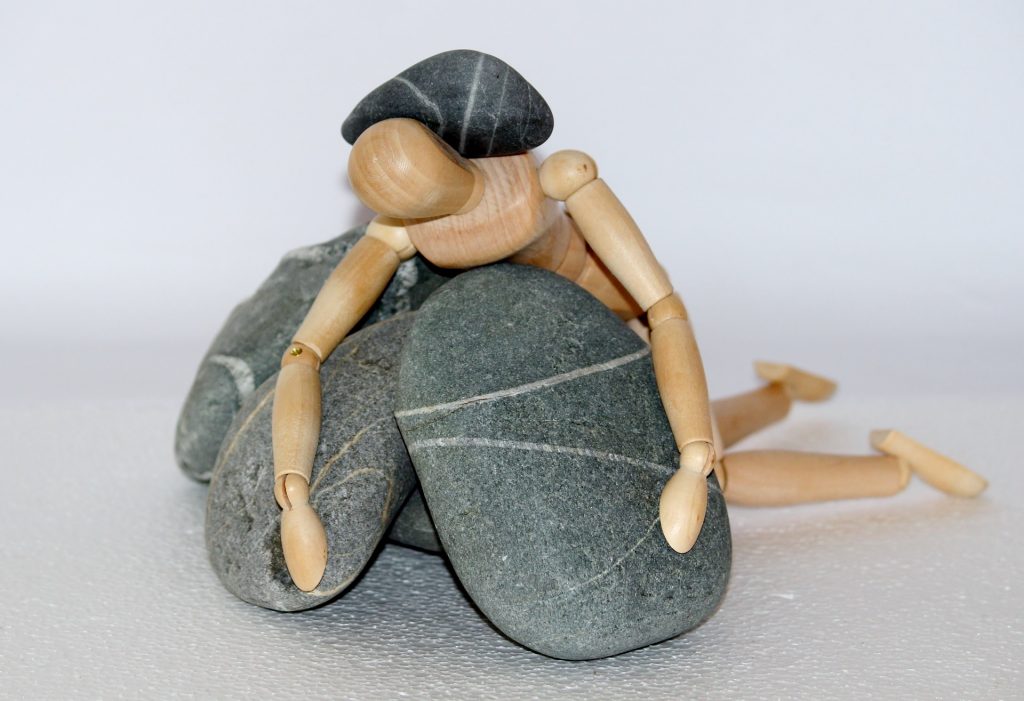
A Look at The Problem
You are probably familiar with the popular reality show ‘The Biggest Loser’, where contestants compete for a cash prize by losing the most amount of weight in proportion to their initial weight. It’s so popular that some people make a crude version of it in real life. Some of my former officemates would wager money, agreeing to pay the one person in the group who could lose the most weight in a given amount of time.
Kai Hibbard, the winner of the The Biggest Loser’s third season, found himself bleeding through his shoes in the first three weeks of the show. By the end of the season, he had been working out for six to eight hours each day, all while eating only a thousand calories or less per day. By the time the show had ended, Hibbard had developed thrush due to a crashed immune system. Ryan Benson, the winner of the show’s first season, dehydrated himself so much he urinated blood.
Now was it worth all the tortuous efforts?
“It was the biggest mistake of my life,” is what Kai Hibbard has to say about the show.
Danny Cahill, winner of the show’s eighth season, went down from 430 to 191 pounds by the end of the show. But years after, he’s regained over 100 pounds despite his best efforts. Most of the 16 contestants have regained much if not all of the weight they worked so hard to lose. Some have even gained more weight than they had started with. Even worse, nearly all the contestants now have slower rates of metabolism. This means that if they wish to lose weight, they will have to eat much less and exercise much more than they did before they joined the show. Cahill now has to eat 800 calories less than a typical man his size would have to each day if he is to stay at his current weight of 295 pounds. They are now worse off than when they’d started!
What went wrong? How can you avoid making the same grievous mistake?
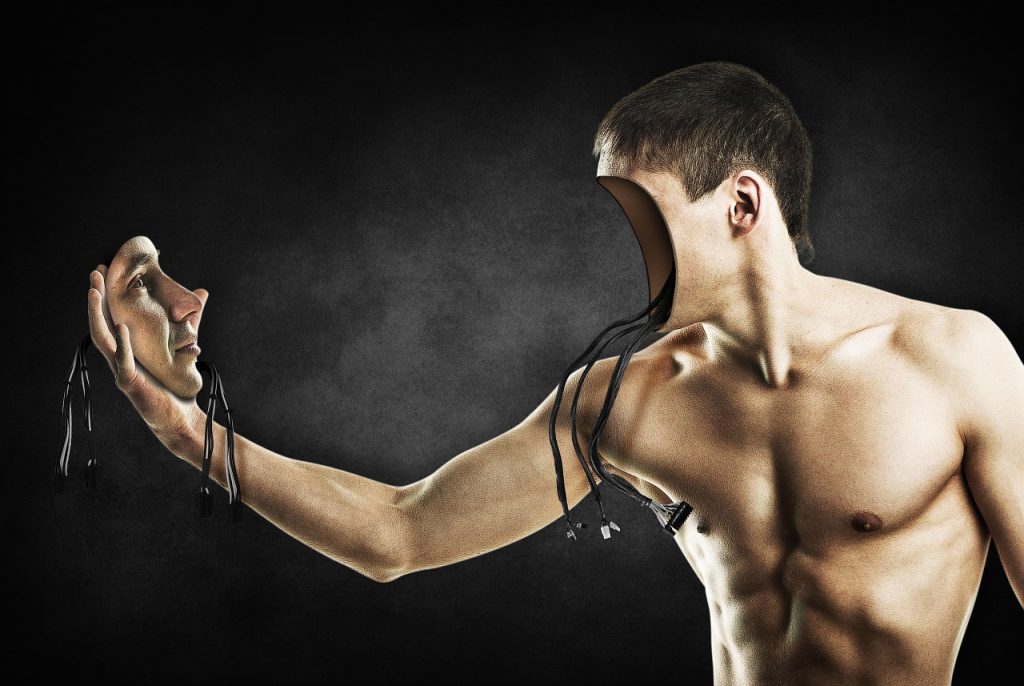
Know Your Body for an Effective Body and Life Hack
Our body has a survival instinct that comes in the form of homeostasis, or the body’s natural tendency to seek and maintain a balanced or steady internal state. You cry when you are overwhelmed with emotions, whether from joy or from pain. You shiver when you are too cold. To illustrate, your body’s temperature-regulation system works like a room thermostat. Just as the thermostat’s control device responds to feedback from sensors by switching on the furnace when it registers a cold temperature, our blood vessels constrict to conserve warmth when our body temperature cools. We automatically shiver, as if our body is internally and involuntarily shaking to stay warm. We also feel driven to grab a jacket or seek a warmer environment.
When you eat too little, your body senses the low caloric intake and nutrient deficiency. It then responds by slowing down its metabolism to conserve energy and by storing fat. This means that eating less does not always mean lesser caloric intake. Sometimes it results in the opposite. Your self-inflicted starvation then becomes self-defeating!
More so, your body’s homeostatic system also sets off an interplay of hormones that triggers the feelings of hunger and cravings, all in the efforts to motivate you to eat more. So you don’t only end up failing to lose weight or to maintain a lower weight when you eat very little, you also become perpetually hungry and unsatisfied! There goes happiness.
Case in point, slower metabolism was not the only reason The Biggest Loser’s contestants regained weight. They had to fight a hard battle against cravings, hunger, and binges. This is caused by the interplay of brain mechanisms and hormones (i.e. the appetite-regulating arcuate nucleus in the hypothalamus, the hunger arousing and appetite inducing hormone ghrelin secreted by an empty stomach, hunger decreasing hormones like leptin and PYY, and hunger-inducing hormones like orexin). Investigators pinned their attention to leptin, a hormone that reduces hunger. The contestants had normal levels of leptin when they joined the show, but had almost no leptin by the time it ended.
This could only mean one thing – they must have been ravenous. More ravenous than I will ever be. When they regained their weight, their leptin levels increased but only up to half of the levels they had before they joined the show (note that leptin is a hunger-reducing hormone). This would help explain their almost inescapable urges to eat. And this points to yet another reason why you should never subject yourself to a prolonged state of “starvation”!
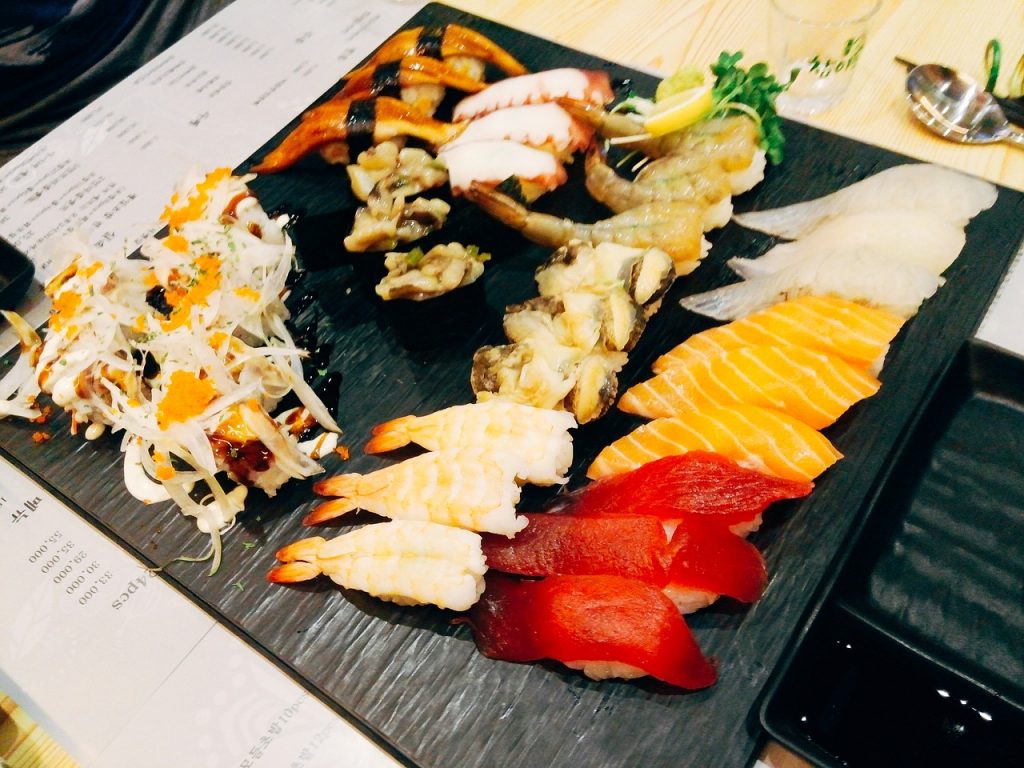
Food is Everything!
“Nature often equips life’s essentials—sex, eating, nursing—with built-in gratification.”
– Frans de Waal, “Morals Without God?,” 2010
In their study of semistarvation, Ancel Keys and his research team cut the food intake of 36 male volunteers in half. The men’s automatic reaction was to conserve energy. They started to exhibit listlessness and apathy. More so, they became food-obsessed. They daydreamed food. They talked food. They read cookbooks, collected recipes, and ogled forbidden foods. Deprived of their basic need, they lost interest in social activities and sex. “If we see a show, the most interesting part of it is contained in scenes where people are eating. I couldn’t laugh at the funniest picture in the world, and love scenes are completely dull,” one participant reported.
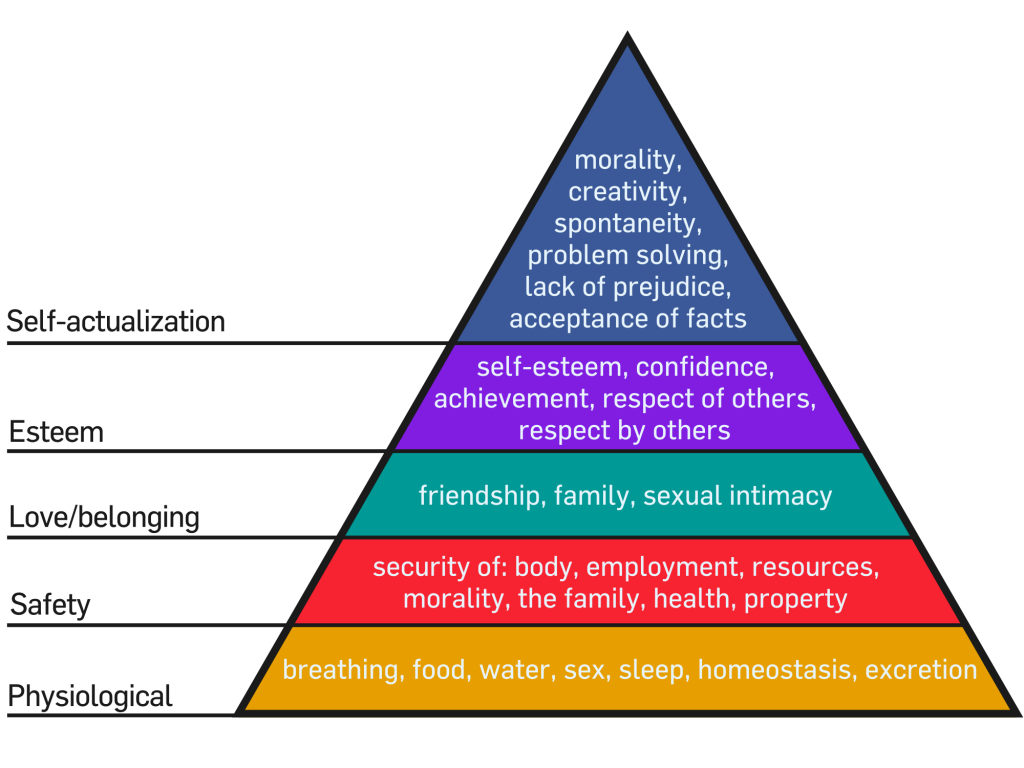
This vividly illustrates Abraham Maslow’s hierarchy of needs. At the base of the pyramid are basic physiological needs for food, water and such. Should your need for water go unsatisfied, your thirst will preoccupy you. When your basic physiological needs are unmet, it’s harder for you to go up the pyramid and satisfy your need for safety, sense of belongingness, self-love, and self-actualization. Unduly self-deprivation of basic needs can keep you from reaching your full potential as a person. So stop starving yourself! Eat. And actually get satiated.

Key Takeaways
Please. Please stop starving. This is not to say that you should overindulge yourself and eat and eat and eat. Remember, too much of anything is bad. Plus, we are born with a genetic predisposition to either stay thin or gain weight. If you belong to the latter, you really do have to watch what you eat. I’d say moderation is key. Always aim to feel full or satiated, but don’t get overindulgent or be given to gluttony. MODERATION IS KEY. And always choose to eat healthy. A satiating Japanese meal of rice and okazu is definitely a better option than indulging in caramelized popcorn. I have a turbocharged metabolism and tend to eat to my heart’s delight, but even I avoid processed junk foods, as I feel they would only store unwanted fats in my belly.
Also, avoid crash diets and extreme weight loss regimens. They will only wreak havoc on your system. The New York Times published an article about how contestants from ‘The Biggest Loser’ regained their weight, and these are what some readers had to say:
‘I have been dieting all my life.’ This is depressing and more than a bit overwhelming. As someone who has struggled with weight almost all of my adult life, I can’t help but wonder if I am fighting a losing battle or making things worse in the long run. Stay at my current weight (overweight though not obese) or diet and risk lowering my already low metabolism even more? I exercise daily and vigorously though that seems to have little impact on my weight, but have gone on and off heavily restrictive diets for more than 10 years. And it’s true, each time I stop, I gain a bit more weight, so that now I am 20 pounds more than I was 10 years ago.
I was 10 years old when I first dieted. I have been dieting all my life. Each time, I regain the weight plus 20 more pounds. The last time, I decided on different goals. I wanted to feel better and move through space more easily rather than lose weight on a scale. I threw my scale away. I focused on what I needed to eat rather than what I should not.
“I lost the weight slowly, probably about a 2 to 3 year span of time, and after reading this I’m glad I did not do it any faster.”
The amount of exercise the show uses is unrealistic in the extreme. Slower weight loss and more moderate (brisk walking) exercise would be a more prudent approach. I lost 1 to 2 pounds a week for a total of 45 pounds (I’m 5’ 2”) and have maintained it with some up and down for over eight years. The up and down is never more than five pounds and only happens when I stop weighing myself once per week.
Take your time with your weight loss. It is more sustainable that way. And develop a healthy relationship with food. Eat right and eat enough, so it won’t consume your thoughts so much.
The New York Times treated the whole phenomenon of the contestants regaining weight due to a slower metabolism and a wrecked hormonal system as if it was a whole new and shocking thing … something I find appalling. My friends are probably tired of me going into my nerdy tirade about homeostasis and sh*t, because I have been at it since forever. I remember I first read about it on an introductory Psychology textbook way back in college. I was 17 or 18 then. It was discussed on a chapter about ‘Motivation’ and ‘Hunger’. This is so not new! And this is something more and more people should be aware of.
On this note, do be wary of the health gurus you follow …
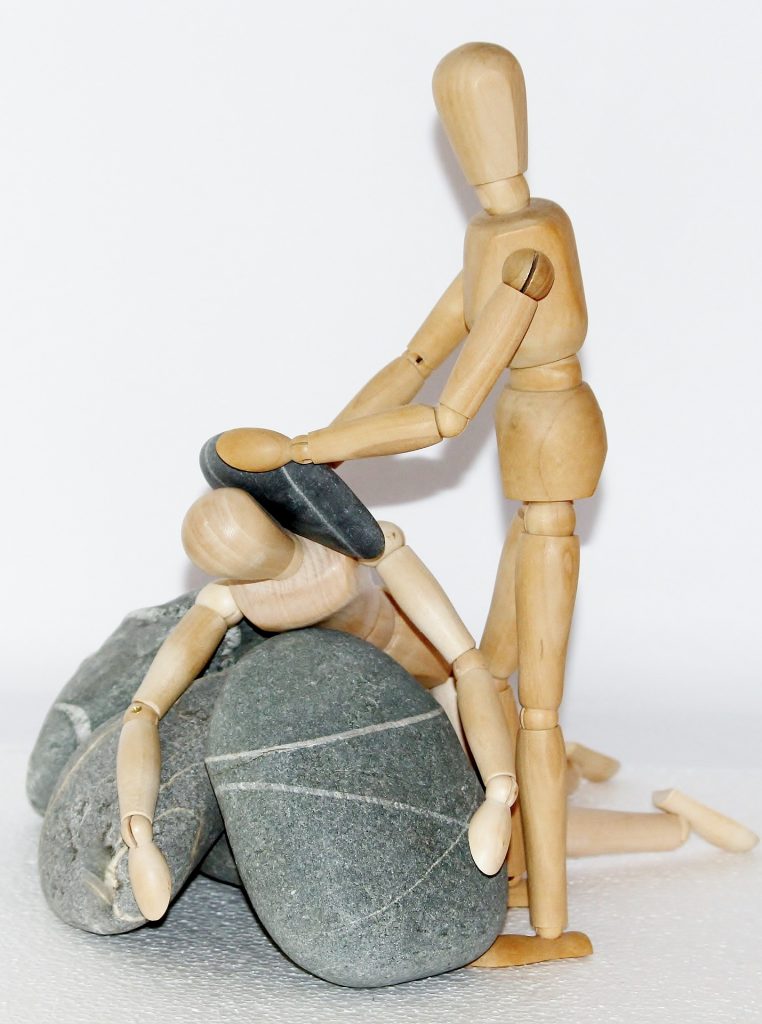
Be Wary of the Health Gurus You Follow
Harley Pasternak, a New York Times bestselling author and a Los Angeles-based trainer, was hired as the first trainer for the show ‘The Biggest Loser’. Pasternak said in an interview with the Guardian that he formed reservations during the the show’s development phase and decided to pull out before filming for the premier series began. “The more I learned about it, the less it seemed like it would be a good idea for me … “These entertaining scenarios make for great television, but it’s not for someone who is concerned with making people healthy.” he said.
Pasternak, who holds a master’s degree in exercise science, expressed concerns about the dramatization of the weight-loss process, particularly of the “screaming and yelling and crying” involved. Furthermore, he was worried about the potential injuries that could be caused by over-exercising.
“The last straw was when they cast an actress opposite me. I was going up against a TV trainer, not a real one,” he further added. He was referring to Jillian Michaels who eventually became the show’s trainer for twelve seasons. This enabled her to build a multimillion-dollar fitness empire.
Jillian Michaels employed tactics that wreaked havoc on the show’s contestants. Her idea of motivating the contestants was to hurl insults and verbal threats. A bad idea considering that it is partly emotional turmoil that drives people to overeat. And of course, there are the extreme exercise regimen and virtual starvation.
Anyhow, here’s a book by Harley Pasternak. It may be worth checking out. 🙂
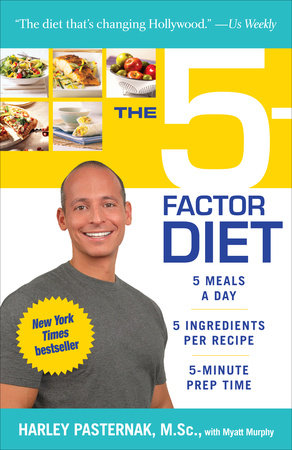
Disclaimer: Never read it. Never tried it. Paternak’s credentials and work ethics seem promising though. Also, Pasternak here shares a five-week program that explicitly claims to “help you lose weight and get fit without feeling hungry or deprived.” In keeping with everything I discussed above. The book features five meals (with five core ingredients each) in a day, five-minute meal preparation for over a hundred recipes, and five short workouts each week. Yeah, pretty promising and sound.
I will be writing an article about psychology-based hacks you can use to improve your weight loss regimen. Do watch out for it. 🙂
![]() Connect with Urban Ponder! You will find a Facebook like button on this page. Scroll down if you’re on mobile or look to the right of the screen if you’re on PC/laptop. Awesome deals and informative articles await you. Don’t forget to share this! 🙂
Connect with Urban Ponder! You will find a Facebook like button on this page. Scroll down if you’re on mobile or look to the right of the screen if you’re on PC/laptop. Awesome deals and informative articles await you. Don’t forget to share this! 🙂
Author: Tahna de Veyra
Voracious eater. Coffee dependent. Book sniffer. Music addict. Profound thinker. Certified ambivert. Life-hungry maverick. Nonchalant realist. Hesitant blogger.

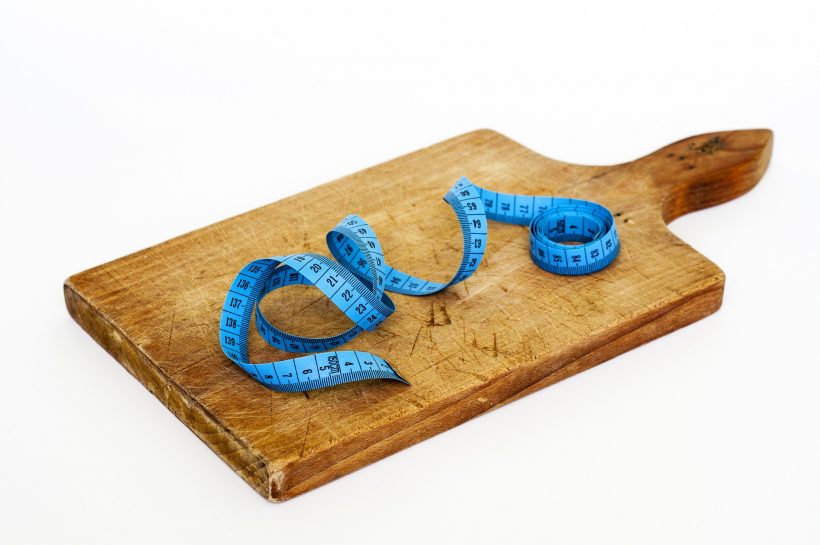
I am guilty of starvation. But I have changed that. I haven’t lost much weight. Only 5 lbs., but I haven’t gained either. The next step is to get moving. My husband is a distraction however, I have learned to love brown rice, he specifically asks for white now. There are other examples too but I am about to have him start cooking for himself. 🙂 Thanks for the advice.
I am so happy to hear you have moved past starving. No person should have to suffer through that. Especially as it’s not serving its supposed purpose of helping to lose weight. It even does the exact opposite! And most definitely, we all must get our lovely a$$es moving … if only just to stay healthy. And for a fit bod too of course! 🙂
I love that you are trying to switch to brown rice. I have always wanted to, but have never gotten down to it. Should put more attention to that again. See, I have this aversion for processed food (I literally get groggy), white rice included, which is why I don’t eat much rice even if I’m a big eater. I believe it’s one of the reasons I have a flat tummy. I have friends who are thin but are not so thin on the tummy area, and I blame their rice intake.
You are on the right track. Losing weight slowly is a more sustainable way to go. And it is definitely much less tortuous! At the rate that things are going, you should be able to handle the distractions more easily. Just focus on what you can eat instead of what you cannot eat, as the latter gives you this sense of deprivation that makes you crave for things you may not even want at all.
Thanks for stopping by and do keep in touch! 🙂
Most of the time, it’s about feeling good with ourselves, with our minds and definitely listen to it. No one should starve to lose weight (we’ve all (almost) been there, thinking it was the right way). We should just appreciate what we eat and understand why we eat it. It’s about consciousness and sustainability.
xo, Margot
http://thepastelproject.com/
I agree. We should put our health and well-being first. And choosing more sustainable and healthy lifestyle changes are definitely better options. Appreciation for what we eat is always helpful, as it helps us steer away from destructive feelings of deprivation.
I’ve never starved myself to lose weight, but I can totally understand ones who do. I mean, I’ve been there thinking that I shouldn’t eat because I want to lose weight, but pretty quickly realised that it’s about what you eat, not about how much you eat.
That’s right. Sometimes it’s what “common sense” tells us … that the less we eat, the less weight we gain. That is, unfortunately, not always the case. And it does not help that many “health gurus” mistakenly advocate it.
Balanced good food is so important! If you don’t eat enough nutrients you won’t be able to exercise and do things in general. Good post, thank you for sharing! 🙂
Yuuup! 🙂 The operative word is “balance”.
I have done some different diets and found that one has worked with me but now with me nursing my child, I find it now harder to diet as I can only do the slimming world diet as that is the only one that is safe
The safer route is the definitely the way to go! Especially as you are now nurturing two people! 🙂
I found this really interesting, especially when you were discussing Maslow’s Hierarchy of needs as I studied that last year as I am a psychology student. it is definitely an interesting concept, however, and I agree that it fits in this situation, however, we discussed how in a real world perspective it doesn’t fit other situations. Overall, an interesting read and I found it super helpful. Thank you for sharing.
http://paigemargaretblog.blogspot.co.nz
Most definitely! There are other different ways to explain motivation, like drive-reduction and optimum arousal theories. It mostly depends on the type of situation the person is in! 🙂
Enjoy your study of Psychology. Worthwhile, right?
I think it’s important to listen to your body when you’re hungry. Don’t starve yourself. Don’t over eat and eat unhealthy all the time
Most definitely. Listen to your body, and remember that moderation is key. 🙂
I think calorie restricting being the most popular form of dieting is what leads us to this obsessive starvation tactic. I’ve been there a hundred times before, it seems. But I think realizing what it is and learning from it is the best way to find contentedness with not only ourselves but with the slow process that weight loss can sometimes (usually) be.
You got it, girl! A deep understanding of the way things are help us take more effective and more sustainable steps toward our goals, or to find contentedness. And it helps us steer away from those that are ineffective at best and destructive at worst.
This is helpful! I’ve always been terrible at dieting because I get so hungry
Knowing your body will definitely help you control feelings of hunger, as well as cravings and urges. 🙂
I couldn’t agree with you more! I have always paid attention to my body’s need for homeostasis. I have been the same weight since I was a teenager, plus or minus a few pounds when I’m stressed or sick–so clearly, there is a weight that my body was meant to be, and I’m not going to spend my entire life struggling against that when there are so many processes in my body fighting to keep things stable. Thanks for writing about the physiology of this in a way that’s easy for the average person to understand–it’s such an important but little-known issue in this society.
Thank you so much for this! Appreciate it. I love hearing that I was able to explain it in a way that’s easy to understand. <3
And yes, there is a settling point that the body goes back to. And working with your body, not against it, is always the sustainable way to go. Many psychologists agree that this settling point or the body weight our body chooses to go back to can change, but it would only do so for the better when done in a healthy and sustainable manner. Drastic weight loss regimens would only change the settling point to that of a heavier weight.
This post really puts things into perspective. Eating right is more important than starving yourself. Moderation. That sums it up.
Yes! Moderation is the keyword here. Thank you. 🙂
Everyone tells me that I have to gain weight because I’m so skinny and so tall. However, I’m at a weight which I’m totally satisfied with. Loved reading this, and I couldn’t agree with you more, thanks for sharing 🙂
-Dominick (www.domijones.com)
Same here! Some people keep telling me that I need to gain weight, but I am pretty happy with my body, especially with how it feels. It feels pretty healthy to me! 🙂
Very well written and I really enjoyed reading it. Too much starves is also not good, but always balance between the foods what we eats and on the right time regularly, I think will be balance. And of course choose the right foods and healthy foods as well. Thank you for sharing dear.
Kintan XO,
http://kintanfashion.blogspot.com
Exactly! The right food eaten at the right time or intervals. And balance.
And thank you, dear! :*
Such great info !!!!! I agree with everything !
Thank you! 🙂
Great post, and amazing explanations, because there is a lot people in doubt or not really know much on how to do proper diet, so they make more damage than good. xoxo
http://www.theninebyivana.blogspot.com
That’s right. That’s why it always pays to be informed.
Thank you, dear. 🙂
Very helpful content! Thanks a lot for the write-up!
Thank you. 🙂
In my opinion one should only be wary of two things when trying to lose weight: eating as natural as possible (I mean not-processed foods) and avoiding fatty foods. It’s important to eat varied and there are many natural foods that can ease any and all of our cravings!! Thanks for sharing!
Carlota | http://thewandereuse.com
That’s my own eating philosophy in a nutshell! <3
This is a great blog, so much useful information! There’s a lot to say for healthy eating!
Thank you! <3
Since switching to low carb, I’m very rarely hungry but before following this way of life it was a very different story. Good read
Thank you! 🙂 I’m on low-carb as well. Not to lose weight, but because it feels better. Works for me as well. 🙂
It’s all about balance. I’m about to start a new, healthier regime, this is great motivation.
I’ve been getting into health even more lately. I’ve realized a lot lately that finding your set point is truly a thing!
This is so important to know! Very informative! Thanks for sharing!
cool tips
So many truths in this article! I try to eat healthily rather than limiting how much I eat.